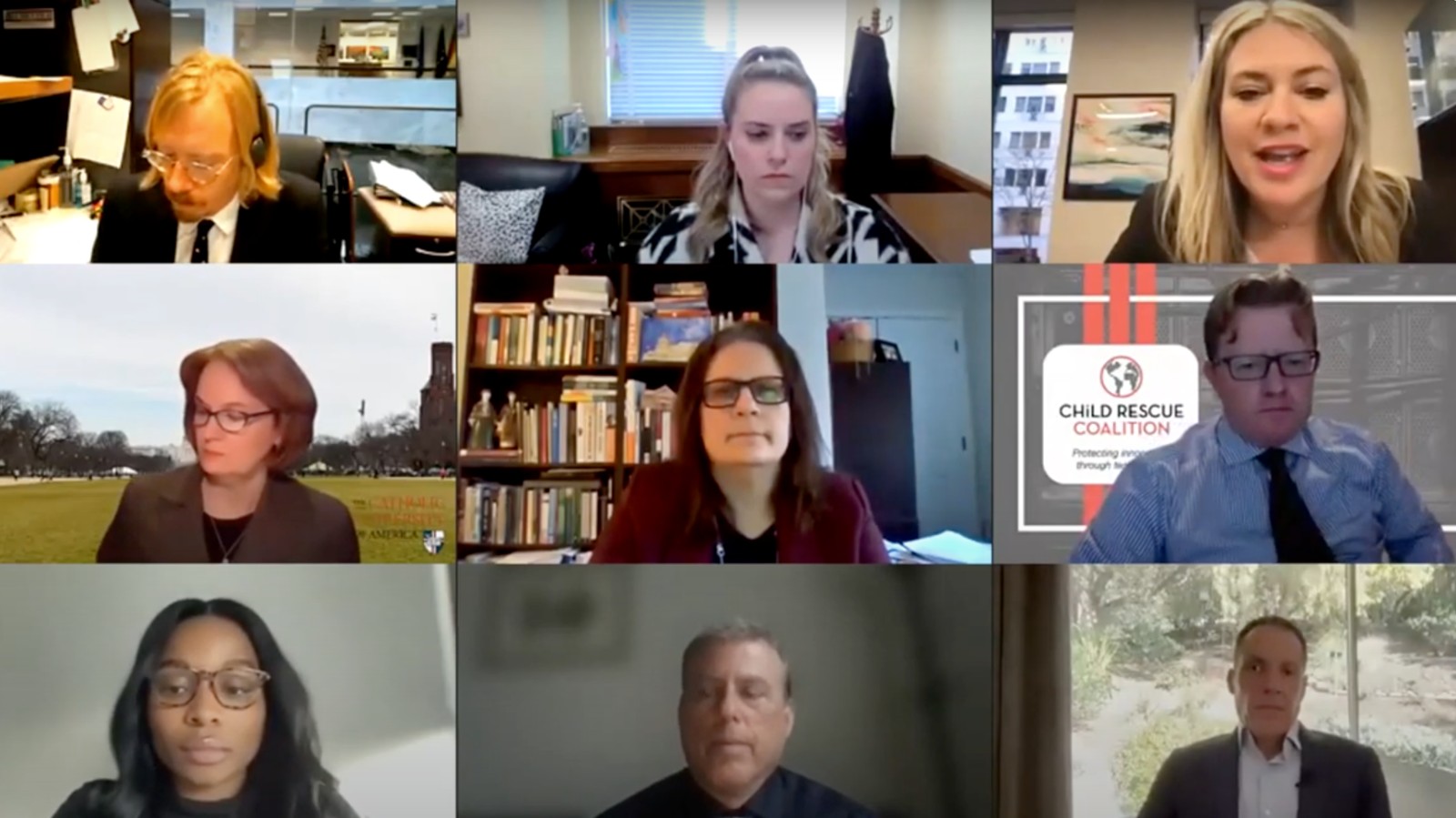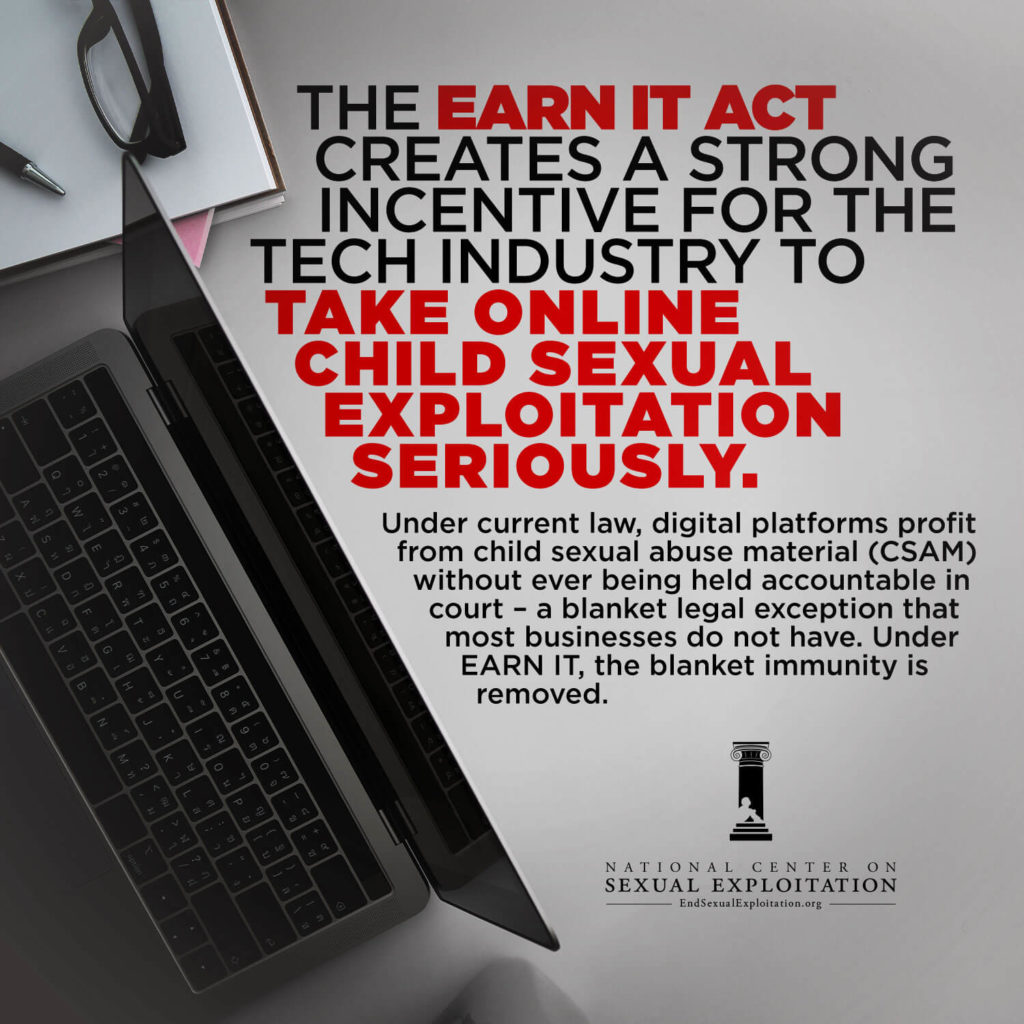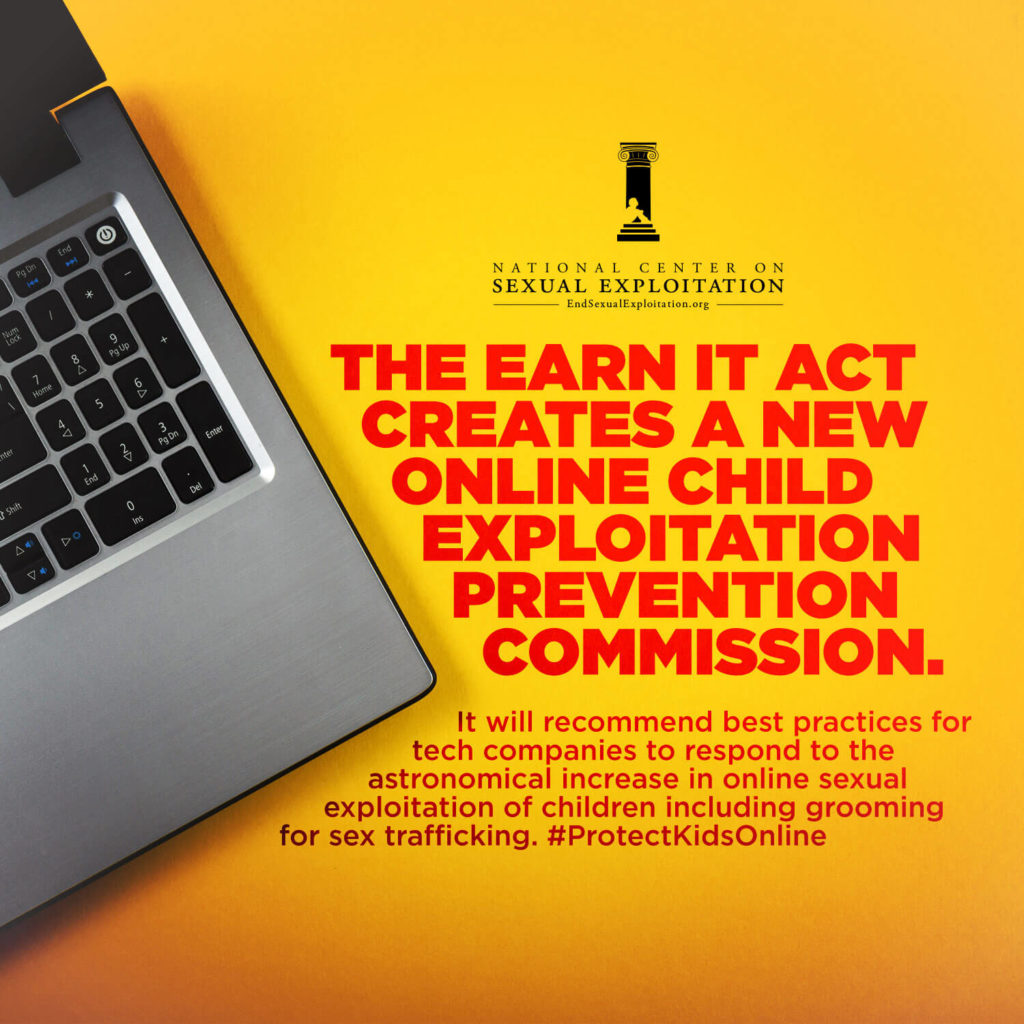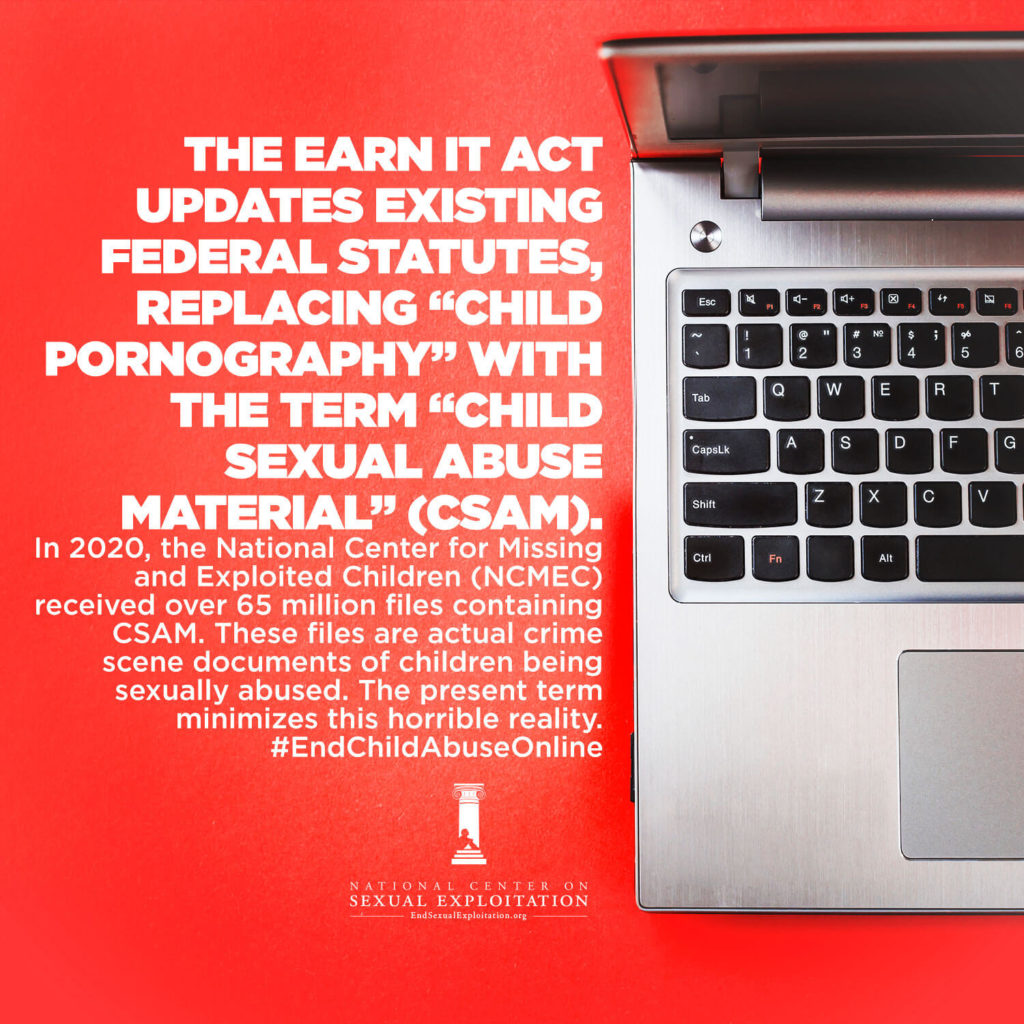
BREAKING: Bipartisan EARN IT Act Re-introduced for 2023
Imagine a world where the sexual abuse of a child is recorded and circulated on popular social media sites. A world where a 12 or 13 year-old has to go to school every day knowing their teachers or classmates may someday see the worst moments of their lives memorialized online. Knowing that a stranger they pass on the street may re-watch the video over and over again, because it’s never taken down from the Internet.
For too many children, this is a reality.
Everyday, Big Tech scans for malware and spyware but leaves child sexual abuse material undetected.
It’s time to protect child victims’ privacy and pass the EARN IT Act.
About
Support the EARN IT ACT NOW!
We know you—like most people—care about keeping children safe from harm. The internet, while a wonderful thing in many regards, has made children more vulnerable to sexual abuse and exploitation.
While parents and caretakers have a duty to care for and protect their children, the responsibility for creating safe digital spaces must also be shared by the architects of interactive online platforms. For years, they have attempted to evade this responsibility. As a result, countless children have suffered tremendous and ongoing harm.
The EARN IT Act is the most important child protection legislation pending before Congress in 2023. It creates a safer world for children—while still respecting user privacy and free speech—as it does four main things:
Clarifies that there is no immunity for social media and technology companies that knowingly facilitate the distribution of child sexual abuse material (CSAM).
Gives victims a path to justice and possibility of restoring their privacy.
Updates existing federal statutes to replace “child pornography” with the more accurate term “child sexual abuse material” (CSAM). This content is crime scene documentation; “child pornography” fails to convey the seriousness of the abuse.
Establishes a commission of survivors, technology representatives, privacy and civil rights experts, and other stakeholders to recommend best practices for tech companies to implement in order to respond to the astronomical increase in online sexual exploitation of children—including grooming for sex trafficking.
The technology industry opposes the EARN IT Act for a deeply cynical reason: Money. The technology industry doesn’t want to spend money on protecting children from sexual abuse and exploitation on its platforms. Since technology companies know they can’t come out and say, “We don’t want to spend money to fix our platforms and help stop circulating pictures of child rape,” they instead attempt to exaggerate and/or fabricate details to distract the public. You may have heard some fabrications about EARN IT from tech industry lobbyists, so it’s important to know what the EARN IT Act does not do:
Does not undermine encryption
Does not undermine privacy
Does not give the federal government new power
You don’t have to take our word for it. Unlike the technology industry, we encourage you to read the actual bill for yourself to see how it actually works.
Take Action
Help educate others and demand change by sharing these on social media:
FAQS
What is the EARN IT Act?
The Eliminating Abusive and Rampant Neglect of Interactive Technologies Act – or EARN IT Act – entails a precise, surgical, socially responsible change to CDA 230 that will directly address this horrific criminality by effectively ending impunity for online platforms that profit from child sexual exploitation.
Will the EARN IT Act violate my privacy?
No, the tools that companies use to scan for CSAM are similar to how they scan for malware and spyware. These existing processes are what help to secure platforms and protect privacy.
The EARN IT Act not only protects your privacy but will incentivize companies to protect children’s privacy – especially victims of CSAM whose abusive images are being distributed across the Internet right at this moment.
Who supports the EARN IT Act?
190+ organizations from all 50 states (and the District of Columbia) have voiced their support for the EARN IT Act, including 55 survivors of sexual exploitation. The full letter of support is available for you to read.
Why is it important to change terminology from “child pornography” to “child sexual abuse material (CSAM)” in federal statues?
The term child pornography fails to describe the true nature of the content and undermines the seriousness of the abuse. The term CSAM is more accurate and conveys the fact that each image or video documents a crime.
Will the EARN IT Act negatively impact the LGBTQ community and hinder LGBTQ youth from finding information and support?
No. The EARN IT Act focuses solely the issue of CSAM, not sex education, exploring identities, or community building. The Act is about stopping images and videos of child rape from being circulated, not inhibiting people from finding resources.
Will the EARN IT Act coerce platforms into censoring speech that goes beyond illegal CSAM?
The technology used to scan for CSAM, such as PhotoDNA, doesn’t scan the actual photos but compares the hash (the unique digital fingerprint) of a photo to a list of child sexual abuse image hashes. These technologies only detect hashes that are associated with known CSAM. Communications and free speech are not hindered as legal content isn’t detected by this tech.
Who will be appointed to the Commission that the EARN IT Act creates?
The Online Child Exploitation Prevention Commission will be made up of 19 members that include survivors, law enforcement, tech industry representatives, constitutional law and privacy experts, consumer rights advocates, government officials, and computer scientists. They will recommend best practices to help tech companies voluntary and proactively combat child sexual abuse and exploitation.
Myths VS Facts
When looking at a piece of legislation as important as this one, it’s important to separate the myths from the facts. Read through these resources, and you’ll find the answers to most of your questions about the Earn It Act.
Here are some great resources to help:
Updates
Watch the joint press conference from February 10, 2022:
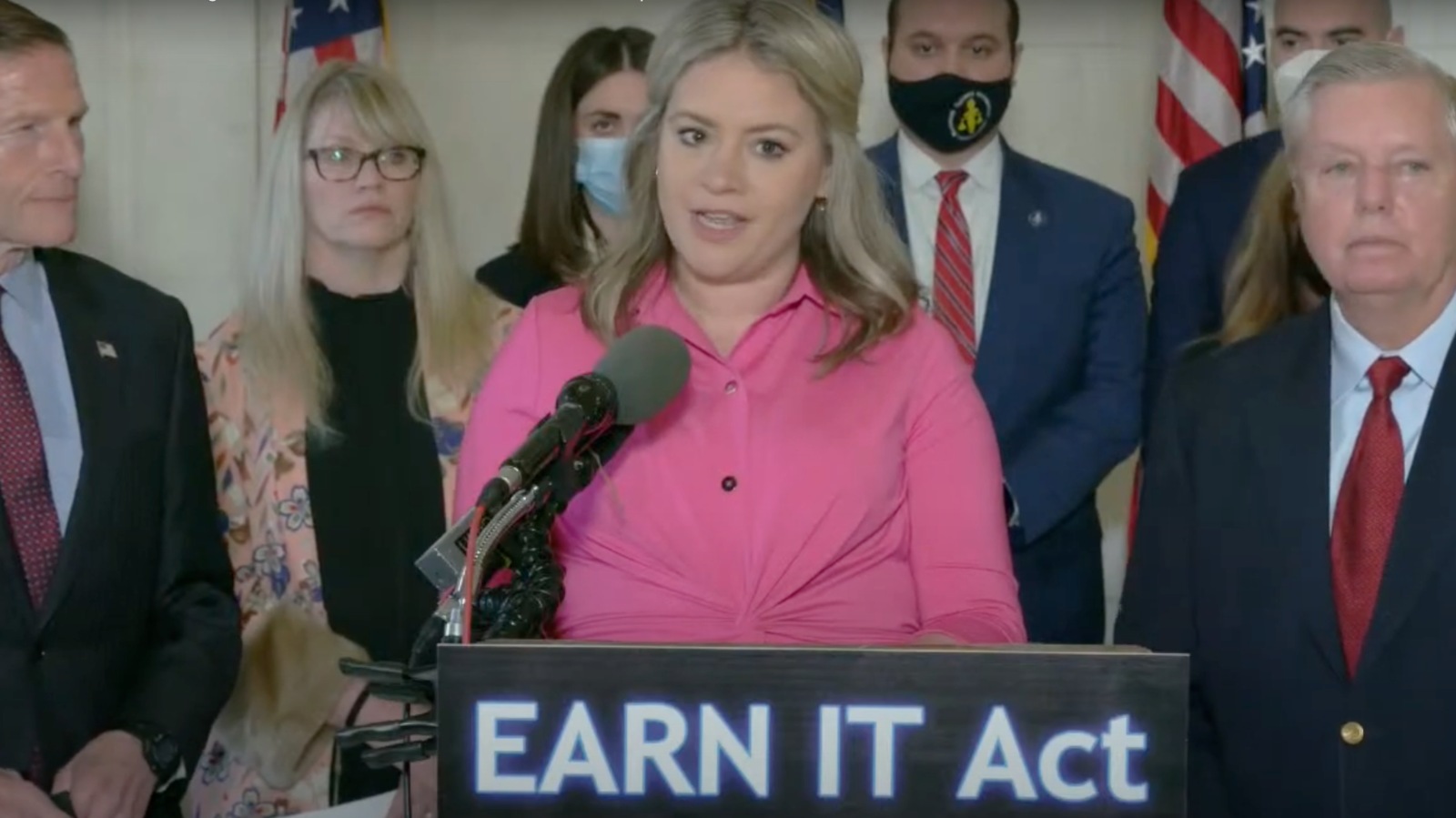
Watch the EARN IT Act Virtual Congressional Briefing from February 8, 2022
